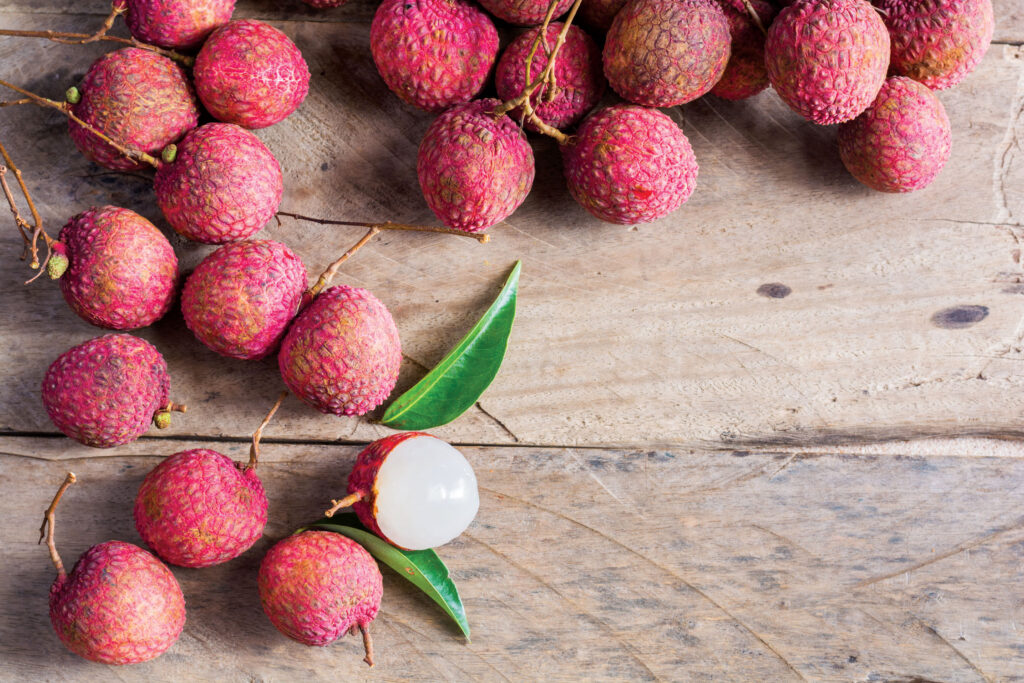Advertisement
Get to Know the Fungus Inside Us
The role of microscopic fungi in gut health

You’re enjoying yourself at your favourite Italian restaurant when your steaming hot dish of tagliatelle ai funghi arrives. With your fork, you chase the bits of mushroom through the noodles to arrange your first bite. Now, pause: when you eat that first forkful, how many fungi are you consuming?
Millions, probably. That’s because with every bite of every meal, you can’t help but consume an array of fungal species invisible to the naked eye. These microscopic fungi—ubiquitous in the environment outside our bodies—are constantly finding their way inside us as we eat and breathe. And not to worry: the fungal community that ends up in our gut just might have a special role in maintaining our health.
Bacteria tend to get all the attention when talking about the intestinal microbiome—the collection of micro-organisms living in the habitat of our gut. But species of fungi are an important part of this collection, too; scientists studying these fungal components of the gut microbiome are beginning to discover their particular relevance to health and disease.
Fungi are a group of micro-organisms, including yeasts and molds, that are mostly large and/or made of multiple cells—in contrast with bacteria, their smaller, single-celled peers. The genes of fungi reveal they come from a completely different domain of organisms on the tree of life and are more closely related to animals than plants.
Advertisement
From outside to inside
What makes fungi different from other gut residents is that they’re particularly representative of the external environment. They arrive in our bodies in a constant stream, only sometimes sticking around long term. Because the human body temperature is not hospitable to many fungi, only select species are able to colonize. So if a particular species of fungi is in our gut at one point in time, there’s no guarantee the same species will be detectable the next day or the next week.
Although intestinal fungi are much less studied than bacteria, scientists have observed some patterns. Common fungi observed in the human gut, for example, include species of Candida yeasts, as well as those in the family Dipodascaceae.
Bacteria and fungi may have direct interactions in the complex gut ecosystem, and fungi in the gut that come from our diet or environment, such as Saccharomyces cerevisiae, seem to have an impact on overall gut ecology.
Advertisement
Gut fungi and infection
While normally tame in a healthy gut, certain fungi, such as Aspergillus and other molds, as well as Candida tropicalis, Candida parapsilosis, or Candida glabrata, occasionally get out of hand and cause serious infection.
What triggers these infections in healthy individuals is still a matter of debate, and may require a better understanding of what fungi do in the complex gut microbial ecosystem. But in immunocompromised individuals, fungal infections are not uncommon and may have consequences ranging from fever and vomiting to mortality. Invasive fungal infections have increased in past decades, as numbers of immunocompromised patients have also increased.
Advertisement
Therapeutic fungi
“There’s no reason why fungi, mainly beneficial yeasts, wouldn’t play important roles in the gut microbiome ecosystem,” says Dr. Juliana Ansari, a microbiologist who studied at the University of Connecticut and created an educational website, The Probiotics Lab. “There’s no reason to arbitrarily limit the key microbes to bacteria.”
Ansari cites an example of an ancient remedy that turned into a modern digestive cure, with a species of yeast as the active player. She says, “The probiotic yeast Saccharomyces boulardii was discovered nearly a century ago, from lychee fruit skins, which people used to [consume] to relieve diarrhea.”
Now, she says, the latest scientific research appears to back this original health application of the probiotic yeast: “A recent meta-analysis of published controlled studies found that S. boulardii was indeed effective at [reducing the risk of] antibiotic-associated diarrhea.” Additional evidence shows its usefulness in preventing diarrhea associated with Clostridium difficile infection, commonly acquired in hospitals.
Advertisement
Fungi in IBD and more
New research is showing other possible areas of therapeutic benefit for “friendly” fungi. Inflammatory bowel disease (IBD) is of particular interest, as French researchers recently found evidence of disturbed fungal communities in the guts of those with IBD, as compared to healthy individuals.
Evidence also suggests that proliferation of a yeast species may increase gut inflammation, leading some scientists to believe antifungal treatments could be a new therapeutic avenue for IBD.
Obesity is another condition in which fungi may be relevant. An important 2015 study showed the species of fungi detected in obese individuals were significantly different from those detected in non-obese individuals. In particular, fungi in the Mucor genus were decreased in the heavier individuals and were restored to more typical levels when the individuals lost weight.
Advertisement
Future fungal research
This leaves open the possibility that, in future, specific species of fungi harvested from the human gut could be developed into next-generation probiotics to treat various conditions.
Which fungal species in the gut ecosystem are the most influential for health? This is the question scientists need to tackle in future research. They may be common probiotic fungal species like S. boulardii, or they may be new ones we don’t yet know much about.
Sure, there are chanterelles, shiitakes, and criminis. But as for the other fungi—the microscopic ones— they might play a special role in health. With scientists gathering more intel on the fungi of the gut ecosystem and how they relate to health and disease, your daily supplement ai funghi may be just what the doctor ordered.





